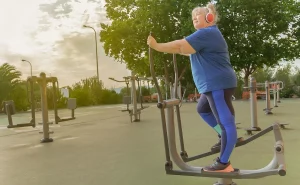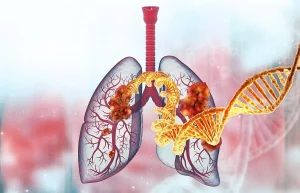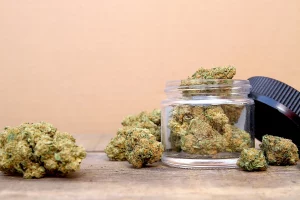“The jab” might soon be replaced with something like “the huff” as slang for a COVID-19 vaccine dose.
Some experts believe that an inhaled vaccine could be a checkmate move in the world’s ongoing chess match against COVID-19.
They argue that inhaled vaccines could not only deliver more effective protection, but could do it at a lower dosage and thus make vaccines available for more people around the globe.
“Targeting vaccines to specific anatomic areas of the body where immunity is most important, could provide more durable and extensive protection than injectable vaccines when it comes to respiratory viruses,” said Dr. Amesh Adalja, a senior scholar with the Johns Hopkins Center for Health Security, in Baltimore.
A newly developed inhaled COVID-19 vaccine just emerged out of Canada, where researchers at McMaster University completed a lab study showing that their new vaccine was safe in mice and produced a robust immune response.
The investigators have now moved their new vaccine to a phase 1 clinical trial, to see if it will boost immunity in healthy adults who’ve already had two shots of a COVID mRNA vaccine.
The Canadian researchers deliver their vaccine through a nebulizer, a device that turns liquid into an aerosol that’s inhaled through the mouth and deep into the lungs.
“We know that when we stimulate immunity in the lung, the qualities of that immunity are intrinsically different than the types of responses that we stimulate when we inject someone with a vaccine the typical way, in their muscle,” said study co-lead author Matthew Miller. He is an associate professor at McMaster University’s Michael G. DeGroote Institute for Infectious Disease Research, in Ontario.
Inhaled vaccine more potent
Shots delivered in the arm have proven effective, but they produce an immune response that has to circulate throughout the body before antibodies wind up in the nose and the lungs — the place where you’d want the most powerful protection against a respiratory virus like COVID-19, Miller said.
The response prompted by an inhaled vaccine “is much more potent because it recruits cells that essentially live in the lung waiting for exposure to pathogen, in this case to SARS-CoV-2. Those cells are not present when we give vaccines intramuscularly,” Miller said.
Inhaled vaccines also have a better chance to promote immunity in the deepest parts of the lungs, where COVID-19 can wreak the most damage, Miller added.
There’s another benefit to that effectiveness, besides personal protection — you don’t have to use as much vaccine to get the same response.
“By focusing that immune response in the lungs, we can use a lot less vaccine and it still goes a lot further,” Miller said. “During this pandemic, we’ve experienced global shortages in the availability of vaccines. Having this dose-sparing effect means we could produce a hundred times more vaccine, or vaccinate a hundred times more people in the same amount of time with the same amount of material.”
Inhaled vaccines also would be “greatly advantageous” in promoting COVID-19 vaccination around the world, Adalja said, “as they free vaccines from needles and syringes, which can be difficult to obtain in certain resource-poor settings, as well as opening up vaccination to needle-phobic individuals.”
A vaccine for the needle-phobic should not be overlooked, said Dr. Corey Casper, CEO of the Infectious Disease Research Institute in Seattle.
“In surveys, about 20% of individuals who are not vaccinated say they would take one if it were not delivered with a shot. That’s not a small fraction, and we need to focus on that,” Casper said.
Miller and his colleagues aren’t the only ones investigating the benefits of an inhaled vaccine.
The Indian firm Bharat Biotech has developed a COVID-19 vaccine that would be sprayed into the nose. The company received approval in January to begin phase 3 clinical trials in humans.
Respiratory viruses best match for nasal, lung delivery of vaccines
And a group of Yale University researchers recently issued a study of lab mice showing that a COVID-19 nasal spray vaccine could boost immune memory cells and antibodies in the nose and throat. The study appeared on bioRxiv, a pre-print site for cutting-edge science that has not yet been peer-reviewed.
“Improving upon current vaccine platforms to provide mucosal immunity is important to curb this current pandemic, and certainly will be important to combat the next,” the Yale team wrote.
But the McMaster researchers think their vaccine has another added benefit: it promotes an antibody response against three different parts of the COVID coronavirus, making it more likely that immunity would be longer lasting than current vaccines that only target the virus’ spike protein.
“While targeting the spike protein made a lot of sense for first-generation vaccines, that approach was going to be inherently limited because this was a virus that was going to continue to evolve. The spike protein was going to mutate and inevitably those vaccines were going to need to be updated,” Miller said.
The Canadian vaccine targets the spike protein, which is the part of the virus that helps it infect cells. However, it also produces an immune response against parts of the virus that protect its genetics and help it replicate — targets that are hidden inside the virus until after it infects a cell, and therefore less likely to mutate away from a vaccine, Miller said.
Miller said his team is working to get their inhaled vaccine approved under an accelerated timeline, possibly within two years.
“I do think inhaled vaccines will be that next major innovation in vaccine design, and hold the promise of really improving the protectiveness of vaccines for respiratory pathogens, including things like influenza for which our current seasonal vaccines are far short of optimal in terms of the average vaccine effectiveness we see on a yearly basis,” Miller said.
The McMaster vaccine research was published online Feb. 8 in the journal Cell.
Other research teams don’t plan to stop with COVID.
Casper said inhaled vaccines make a lot of sense for other respiratory infections, including influenza, RSV and tuberculosis.
“The number one infectious disease killer around the world is still tuberculosis — not incredibly common in the United States, but more people are dying of tuberculosis than any other infectious disease on the planet,” Casper said. “There’s really good evidence to suggest that inhaled vaccines, whether it be in the lung or in the nose, would be highly effective against tuberculosis.”
More information
The U.S. Centers for Disease Control and Prevention has more about COVID-19 vaccines.
SOURCES: Amesh Adalja, MD, senior scholar, Johns Hopkins Center for Health Security, Baltimore; Matthew Miller, PhD, associate professor, McMaster University’s Michael G. DeGroote Institute for Infectious Disease Research, Ontario, Canada; Corey Casper, MD, MPH, CEO, Infectious Disease Research Institute, Seattle; Cell, Feb. 8, 2022, online
Source: HealthDay
Copyright © 2025 HealthDay. All rights reserved.

















